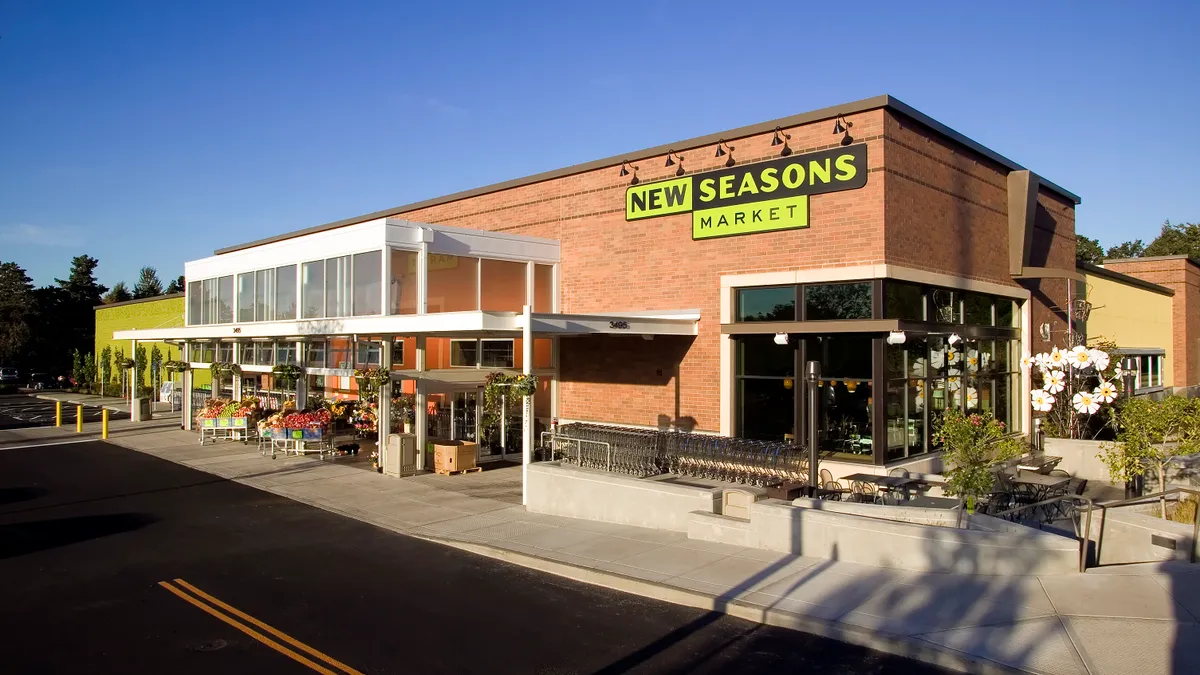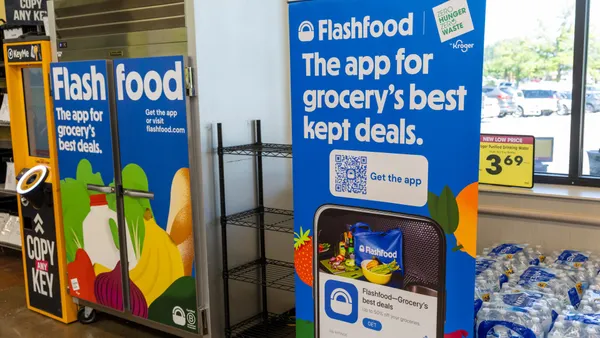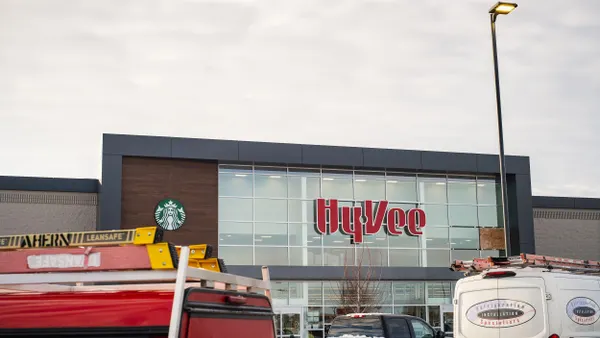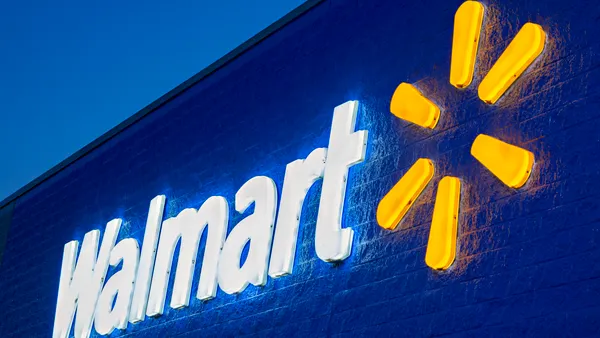New Seasons Market is reducing excess food, boosting sustainability benefits and saving money through its growing upcycling efforts that repurpose food that would otherwise expire and become waste.
Currently, the Portland, Oregon-area grocery chain is upcycling rotisserie chicken, ground beef and berries, according to the Center for EcoTechnology, a non-profit that offers wasted food support to businesses and partner of the chain.
New Seasons diverted 15,000 units of rotisserie chicken — roughly 20,000 pounds of chicken — from waste streams from January to October last year, leading to savings of 9.4 million gallons of water and more than 23.4 metric tons of carbon dioxide emissions, according to an emailed press release. That effort resulted in a 25% increase in hot rotisserie chicken sales.
The 19-store chain is piloting an upcycling program that turns ground beef, which the grocer grinds in-house, into taco meat and berries from the produce section into salad bar additions with the Center for EcoTechnology.
Through these waste reduction strategies, New Seasons projects it will save nearly $1,000 per quarter across all of its stores.
Following the financial and sustainability improvements upcycling has brought the grocer thus far, the chain is looking to expand upcycling to new departments, such as turning bread into bread pudding, the announcement noted.
“The strategies employed by New Seasons Market have the potential to dramatically change the retail food sector not only by saving money and reducing food waste but by generating new income streams,” Center for EcoTechnology Chief Growth Officer Lorenzo Macaluso said in the announcement.
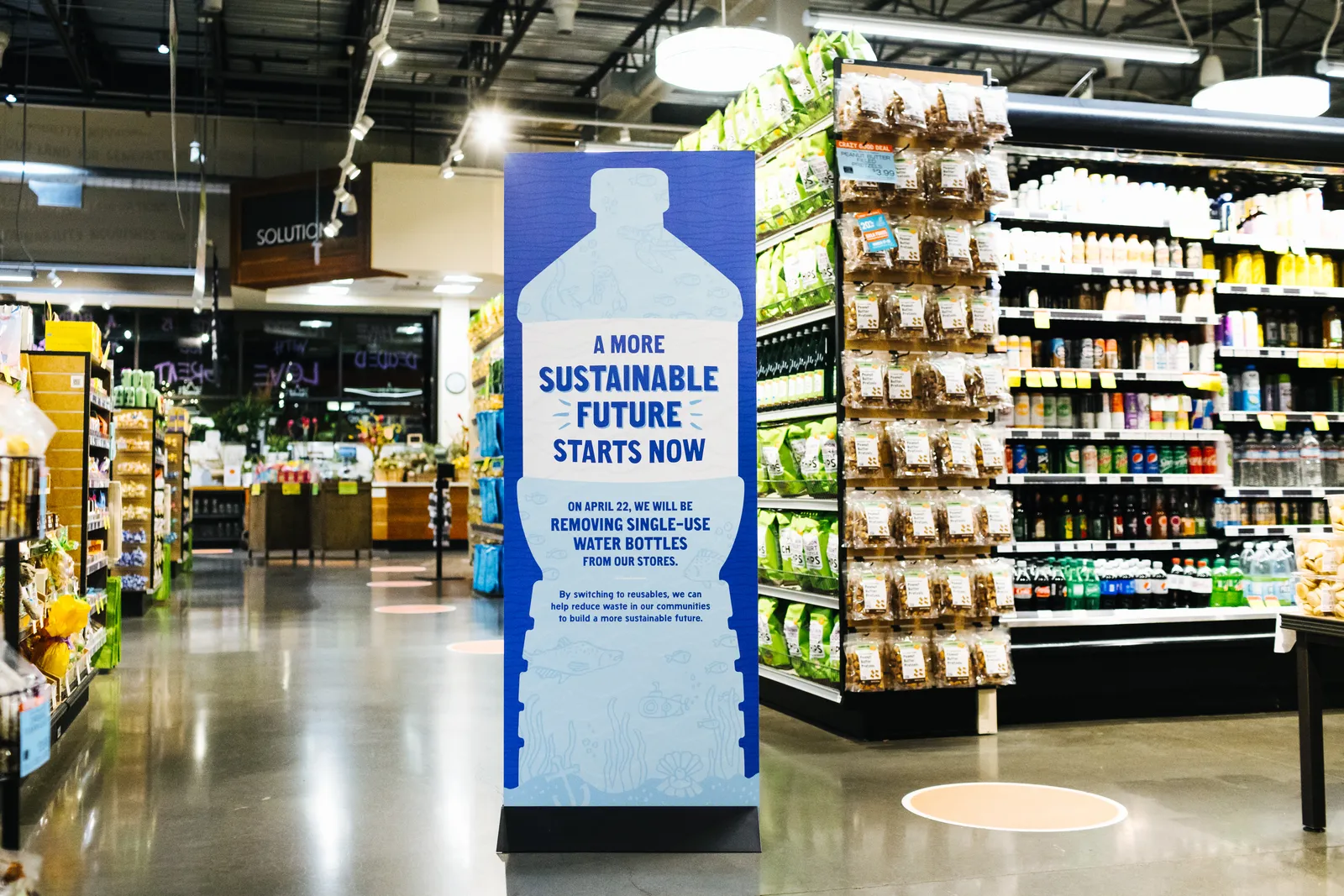
New Seasons started implementing wasted food tracking and diversion strategies in 2021, expanding its efforts from just tracking food waste to adding new ways to reduce waste, including the repurposing program.
When New Seasons signed onto the Pacific Coast Food Waste Commitment, the grocer started to track the quantity and contents of its wasted food items and found that its prepared foods department had the largest amount of waste. The grocer initially started its efforts there, using Standardized Universal Product Codes to scan all wasted items to designated waste codes and give new codes to previously untracked items, per the email.
New Seasons has been able to develop customized weekly summary reports on waste at each of its stores and also invested in a tool that estimates inventory and waste in four-hour intervals, improving ordering accuracy and giving a better understanding of surplus food patterns. With this data-driven approach, New Seasons found upcycling to be a solution that helps address food waste.
New Seasons has been able to upcycle the rotisserie chickens in part because of work done with its packaging suppliers to get containers that keep the chickens at a consistent and safe temperature for hours at a time. The grocery can now upcycle chickens after they have been on display for up to three hours.
New Seasons has been working with Center for EcoTechnology on upcycling surplus berries and ground beef, which has included identifying new value propositions to customers while minimizing additional labor.
“[T]aco meat upcycled from ground beef offers a high potential for sales and waste reduction, and upcycled ground beef allows staff flexibility as it can be added to the prepared foods department’s hot bar or individually packaged for the grab-and-go section,” the nonprofit said in the announcement, noting that beef production is a large contributor to greenhouse gas emissions.
The upcycling efforts build on New Seasons’ sustainability initiatives, which have included adopting a more environmentally friendly packaging solution for its private label line of fresh pasta in spring 2022 and stopping the sale of single-use water bottles in 2021. The grocery chain, which is owned by Good Food Holdings, has previously stated a commitment to cut its food waste by 50% through 2030 and achieve a 60% landfill diversion rate.
Upcycling has been gaining traction among grocers. Earlier this year, Kroger announced the addition of two new upcycled-ingredient breads to its Simple Truth private label brand in an effort to offer more sustainable items. Whole Foods Market included upcycled foods among its 10 trends forecast for 2021.



